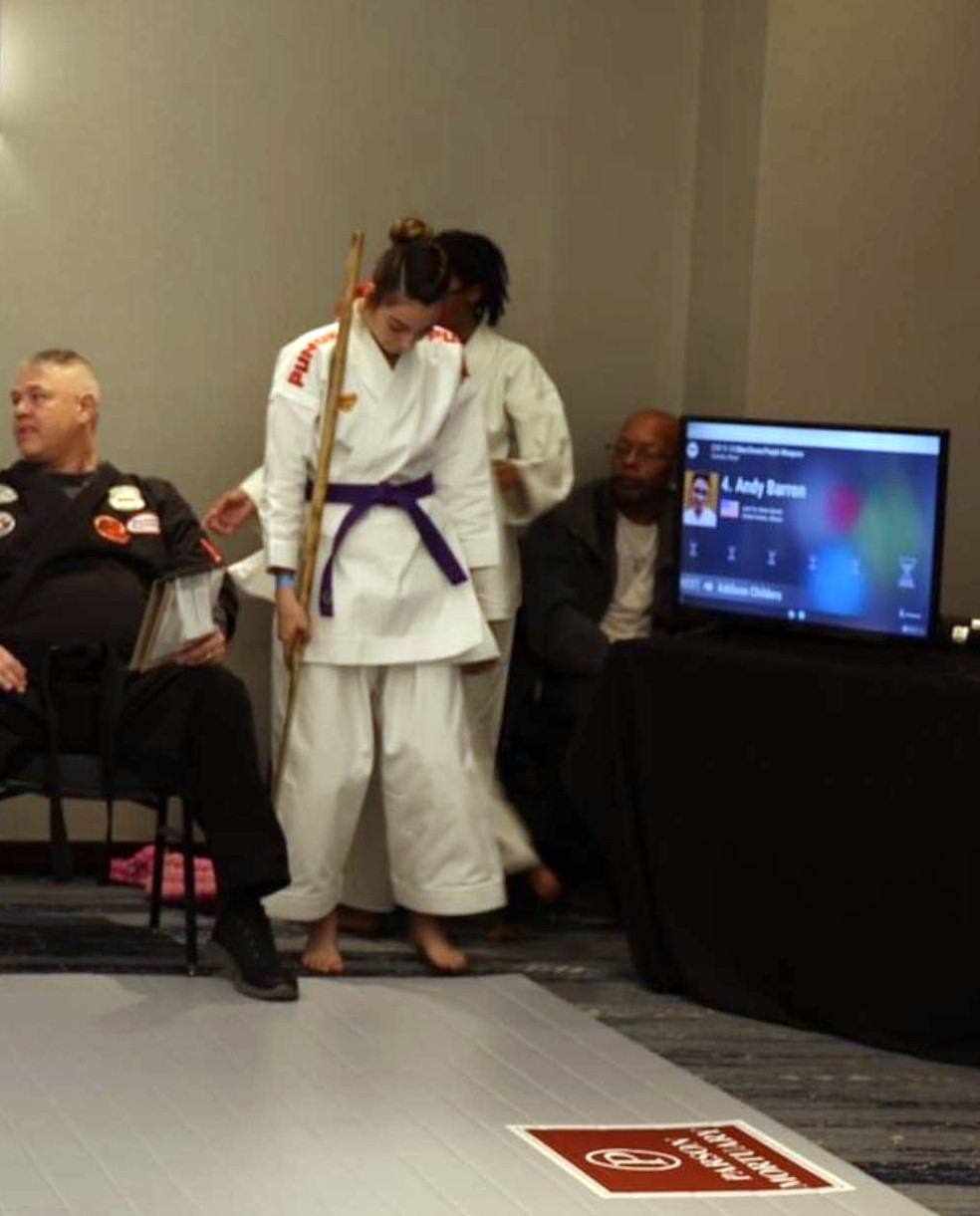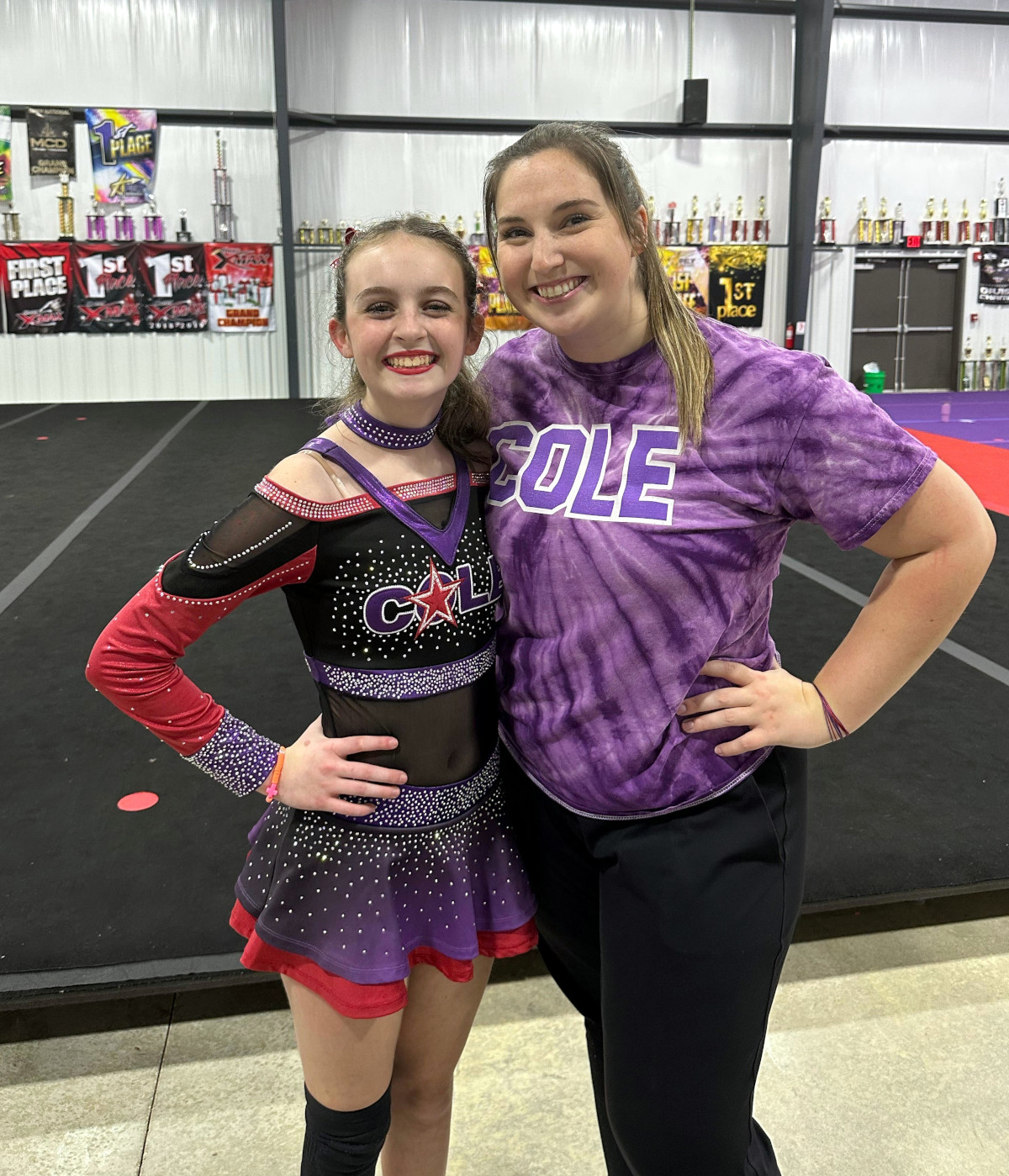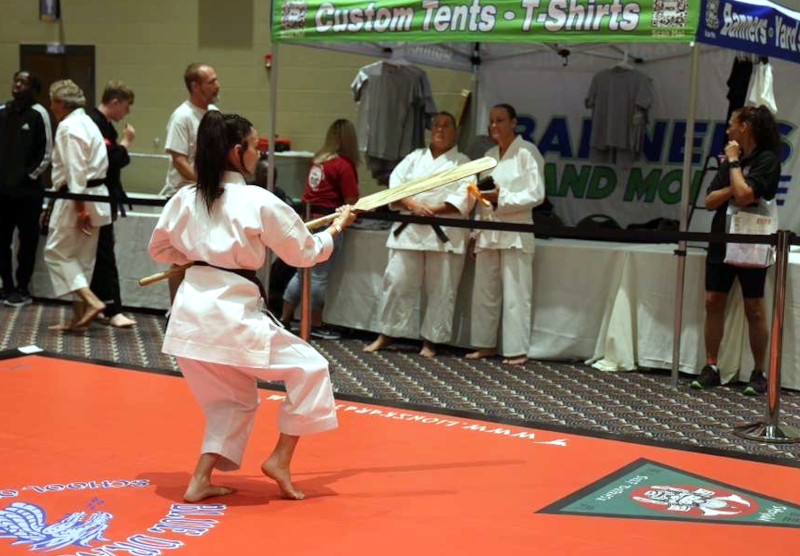By Liz Bramlett
Athletes often overcome physical obstacles. But what about the mental ones, the obstacles that you can’t just fix by doing drills over and over again or lifting heavy weights.
They must find ways to cope with certain difficulties.
Freshman Addison Childers was diagnosed with ADHD when she was around 9 years old.
ADHD stands for attention deficit hyperactivity disorder. This disorder makes it difficult for people to focus on certain tasks, to sit still, to be organized, and other things.
But it is slightly different for everyone.
When Childers was younger, her parents started to notice that she couldn’t just sit calmly without always having to have something to mess around with or something for her hands to fidget with.
Childers said she also had a hard time focusing on some basic daily activities or tasks without getting easily distracted or changing the subject.
A couple of years later Childers started karate. Karate is an active sport that requires movement to succeed, so not much time to just sit around.
Childers said this is good because it gives her more freedom instead of having to sit still all the time.
During a fighting match, Childers said it’s hard to stay completely focused and try not to fidget.
¨I go into my own wonderland,¨ Childers said.

Although she has certain tasks that don´t work well with ADHD, there are some good outcomes that come with it, according to Childers.
Childers said that she is more willing to try new things, like different or more difficult karate moves.
She also said that she is more independent when it comes to directions and she doesn´t necessarily depend on her peers or her coach.
Childers said that she understands the difficulties that come with this diagnosis, therefore she is not so strict on herself when it comes to doing something wrong or not understanding directions right away.
But her former karate sensei thought differently.
Childers’ first dojo, was not the best fit for her.
Childers said that this dojo was way too strict and hard on her when it came to getting distracted and her fidgeting.
Now she is at Shirokai Martial Arts. Childers said that her current sensei understands and adjusts to her ADHD to get her to succeed.
Junior Addy Klontz got diagnosed when she was just a couple years old. When Klontz was young, her parents had started to notice signs of ADHD early on.
Klontz does competitive cheerleading at Cole Academy. She started when she was just 5 years old.

Her cheerleading and ADHD started to overlap as time went on and it has made it difficult for her to stay focused on her own cheers.
¨It is kind of hard with ADHD because you’re trying to focus on one thing but there is so many other things going on around you at a gym,¨ Klontz said
Klontz said as soon as she walks into the gym she tries to push out every other worry or thought. She strives to remind herself that this is cheer practice, not time to think about what she’s going to do after or what drama is going on.
Another difficulty Klontz has is late night practices.
Klontz said that she is always perceived as being happy and energetic, so when she gets to the gym for practice she is tired and just wants to stop listening.
As Klontz goes on in her cheerleading path, she said she will continue to try to overcome these obstacles as if they weren’t even there.
Freshman Reid Cardemon got diagnosed with ADHD when he was eight years old. Cardemon has always been hyperactive, according to his parents, so he said joining tennis might be a good way to incorporate that into his life.
When being an athlete you need to understand directions and drills of what you’re supposed to do.
Which is what Cardemon’s coach helped him with. He said his coach is always willing to take him off one on one to give him clear directions on how to do the task or what to do to help.

Although Cardemon tries to not think about his ADHD, it still shines through during a tennis match.
When Cardemon gets into a tough match and is going back and forth with his opponent he sometimes gets impatient and just does whatever he feels like.
¨During a long rally I will just hit one super fast and hard. I don’t care if it is in or out,¨ Cardemon said, ¨It’s just me¨
However, Cardemon does attempt different tactics to try to control his mind a little more. Some of these ways would be like thinking to himself during a match and just calming the mind. Or even just think about not hitting the ball so hard and wildly.
He said that even though ADHD has its downfalls it also has some good. You just have to look for it.
ADHD makes Cardemon more independent in several ways. When you’re an athlete you may have to be independent for a time or two.
Cardemon also said that his ADHD helps him get out of his comfort zone and try new techniques to help him with tennis.






